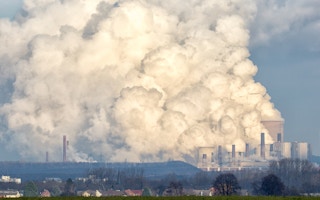Since the signing of the Paris Agreement at COP21, I have been invited to several global events to discuss the text and its impact on business. I have noticed that when it comes to defining the targets for business, the largest focus is generally on Article 2: “the increase in the global average temperature to below 2 ̊C above pre-industrial levels and to pursue efforts to limit the temperature increase to 1.5°C.”
A lot of discussions are based around this statement, looking at the real effect on ‘such and such’ measures, timing issues, the cross-implications of different measures on each other, challenging the baseline chosen to calculate the increase etc.
Some companies are even now writing a so-called 2°C strategy based on the reduction of emissions compared to business as usual. As if business as usual was still possible and desirable! They rightly speak about transition, but in lengthy terms unfortunately not adapted to the urgency expressed by climate change science.
We are carbon addicts so we are discussing how to overcome our addiction, in a mature way, trying to avoid too much suffering. However we seem to refuse to see the obvious; we are facing a huge transformation of our development model, not Kaizen type progress, and, there will be winners and losers.
However, the losers have immense strength and lobbying power. We are in fact in denial of the necessity of change, in denial of our own withdrawal syndrome, as if the danger of not making this deep change was not existential.
Instead of Article 2 we should be focussing on Article 4, which states “…to achieve a balance between anthropogenic emissions by sources and removals by sinks of greenhouse gases in the second half of this century.” In plain English, getting to “net zero emissions” between 2050 and 2100.
Having led several turn-arounds, some of multi-billion companies with tens of thousand of people around the globe, I know that communicating in a clear and simple way is the first key success factor of a turn around.
We have run out of time to discuss the target, what we should agree immediately on now is its concrete implementation. The negotiators of the Paris agreement have shown the way in Article 4. It is a clear, understandable, undisputable way to “zero net emissions”. We must stop losing time on refining the target and procrastinating, instead we must now go for it.
From the US Navy’s KISS (‘Keep It Simple, Stupid’) design principle in the 1960s, simplicity is often at the centre of management theory. Zero tolerance was once used by New York Mayor Rudy Giuliani, and has been described as the real key to success in a much lighter challenge, so why not use this simplicity to fight for our civilisations survival?
In our case, although there are different interpretations, everyone understands the baseline that ‘net zero’ aims for. This is a suitable way, within this kind of complex issue, to motivate and align internally and externally all the stakeholders around a simple but powerful idea.
We need to focus on a course of action and not to come back to endless discussions about impact, measurements, why me and not another person or organisation, etc.
“
We should not choose procrastination and complexity again but now go for a simple meaningful target; zero, nil, nada, niente, rien.
There is no contradiction whatsoever between striving to be below 2°C and net zero emissions except one; net zero is simple and actionable, the other is a collective consequence, but not a business goal.
Organisations that see this already are those associated with the B Team for example, where the two go hand in hand; “Achieving the transition to a thriving and just Net-Zero greenhouse-gas emissions economy by 2050 is the best way to operationalize the long-term goal of maintaining the temperature under the 2°C of warming threshold.”
This is already more ambitious and clearer than the Paris text, targeting the middle of this century, rather than somewhere in the second half.
Last year, Unilever’s CEO Paul Polman, B Team member and Chair of WBCSD, called on business leaders to join in: “A target of net-zero emissions by 2050 is not only desirable but necessary. This is the time to redouble our efforts and further accelerate progress to decarbonise our economy. This is not going to be easy, but the earlier we act, the greater the economic opportunities will be.”
Some organisations such as IKEA are well on their way, with a goal to be 100 per cent renewable by 2020; producing as much renewable energy as they consume. That commitment to 100 per cent renewable power is gaining support thanks to the RE100 initiative.
Shell has now moved ahead of the curve going from a 2°C scenario to a new pathway to net zero emissions. Chad Holliday Chair of Shell and former Chair of WBCSD was in Singapore a few weeks ago to present this work.
We must now change the speed and dimension of our actions - choosing this clear way is the first necessary decision to make. We should not choose procrastination and complexity again but now go for a simple meaningful target; zero, nil, nada, niente, rien. Get rid of GHG emissions, stop discussing and just do it.
Philippe Joubert is a senior advisor and special envoy for energy and climate for the World Business Council for Sustainable Development (WBCSD). This post is republished from Huffington Post with the author’s permission.











